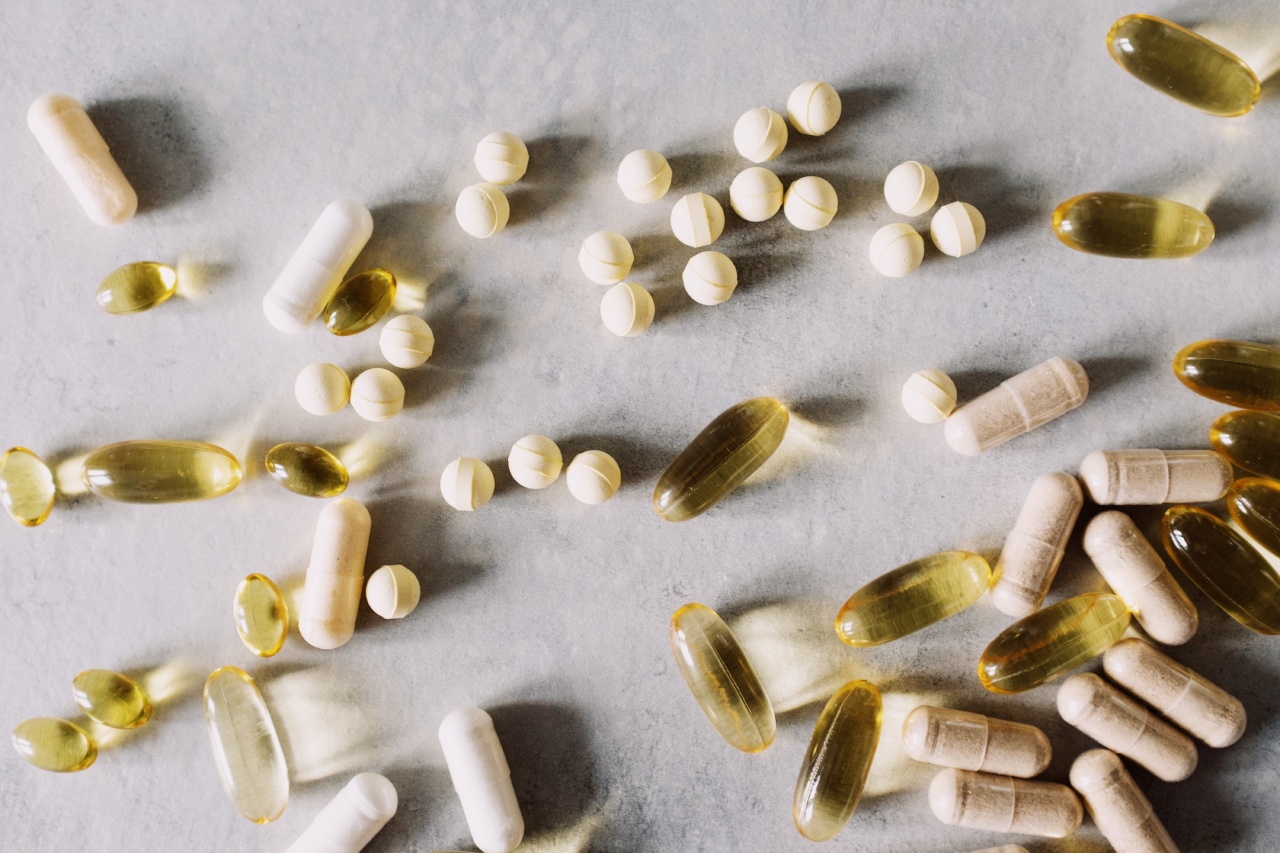Gallstones are small, solid deposits that form in the gallbladder, a small pear-shaped organ located below the liver. These stones can range in size from a grain of sand to a golf ball and can cause severe pain and discomfort.
While the exact cause of gallstones is not known, diet and lifestyle factors play a significant role in their development. Including foods rich in vitamin C in your diet can help prevent the formation of gallstones and promote overall gallbladder health.
The Role of Vitamin C in Gallstone Prevention
Vitamin C, also known as ascorbic acid, is a powerful antioxidant that plays numerous essential roles in the body.
It helps boost the immune system, enhance the absorption of iron, and promote the production of collagen, a vital protein in connective tissues, bones, and skin. Besides these benefits, vitamin C also plays a crucial role in preventing the formation of gallstones.
Research has shown that vitamin C helps reduce the production of cholesterol in the liver, a key factor in gallstone formation.
Gallstones are primarily made up of cholesterol, and when there is an excess amount of cholesterol in the bile, it can crystallize and form stones. By inhibiting cholesterol synthesis, vitamin C helps prevent the buildup of cholesterol in the gallbladder, reducing the risk of gallstones.
The Best Sources of Vitamin C
Getting an adequate amount of vitamin C through your diet is essential for maintaining gallbladder health and preventing gallstones. Fortunately, vitamin C is found abundantly in various fruits and vegetables.
Some of the best sources of vitamin C include:.
1. Citrus Fruits: Oranges, lemons, grapefruits, and limes are excellent sources of vitamin C. Start your day with a refreshing glass of orange juice or add citrus fruits to your salads for a burst of vitamin C.
2. Berries: Strawberries, blueberries, raspberries, and blackberries are not only delicious but also packed with vitamin C. Enjoy a handful of these colorful berries as a snack or blend them into a smoothie.
3. Kiwi: Kiwi is a small fruit that packs a powerful punch of vitamin C. Slice one up and enjoy it on its own or add it to your yogurt or fruit salad.
4. Bell Peppers: Red, yellow, and green bell peppers are rich in vitamin C and make a colorful addition to any dish. Slice them up and enjoy them raw in salads or roasted in a stir-fry.
5. Broccoli: This cruciferous vegetable is not only high in fiber but also an excellent source of vitamin C. Steam it, stir-fry it, or add it to your salads for a nutritious boost.
6. Pineapple: This tropical fruit is not only refreshing but also a great source of vitamin C. Enjoy it fresh, grilled, or blended into a tropical smoothie.
7. Papaya: Papaya is not only delicious but also packed with vitamin C. Add it to your fruit salad or enjoy it on its own for a healthy and sweet treat.
8. Mango: Mangos are known for their sweet and juicy flavor, but they are also abundant in vitamin C. Slice them up or blend them into a delicious mango smoothie.
9. Leafy Greens: Spinach, kale, and other leafy greens are not only rich in vitamins and minerals but also a good source of vitamin C. Add them to your salads, smoothies, or sauté them as a side dish.
10. Tomatoes: Tomatoes are not only versatile but also packed with vitamin C. Enjoy them raw in salads, roasted in the oven, or blended into a tomato sauce.
Additional Tips for Gallstone Prevention
While including vitamin C-rich foods in your diet is a great step towards preventing gallstones, there are some additional tips you can follow:.
1. Stay Hydrated: Adequate hydration helps prevent the concentration of bile, reducing the risk of gallstone formation. Aim to drink at least 8-10 glasses of water per day.
2. Eat a High-Fiber Diet: Consuming a diet high in fiber helps regulate digestion and promotes healthy gallbladder function. Include whole grains, legumes, fruits, and vegetables in your diet.
3. Limit Saturated Fats: Excessive consumption of saturated fats can lead to an increase in cholesterol production. Opt for lean sources of protein, low-fat dairy products, and healthy fats like avocados and nuts.
4. Exercise Regularly: Regular physical activity not only helps maintain a healthy weight but also promotes proper gallbladder function. Aim for at least 30 minutes of exercise most days of the week.
5. Maintain a Healthy Weight: Obesity is a significant risk factor for gallstone formation. By maintaining a healthy weight through a balanced diet and regular exercise, you can reduce your risk of developing gallstones.
Conclusion
Gallstones can be painful and disrupt daily life. However, with the right dietary choices and lifestyle habits, you can significantly reduce your risk of developing them.
Including plenty of vitamin C-rich foods in your diet, staying hydrated, eating a high-fiber diet, limiting saturated fats, exercising regularly, and maintaining a healthy weight are all important steps towards preventing gallstones and keeping your gallbladder healthy.






























